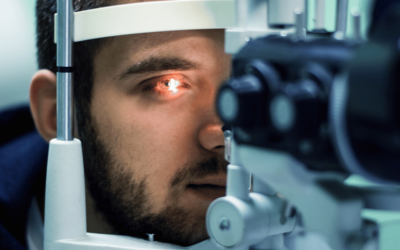Your peripheral vision is an important aspect of your overall vision, allowing you to see what’s happening around you without turning your head. But did you know that peripheral vision loss can occur? And if it does occur, what should you do about it? Let’s look at why peripheral vision is important, what causes peripheral vision loss, and how to address it.
What is peripheral vision?
Peripheral vision is the area outside the central focus point of our eyes. This type of vision allows us to see what’s happening around us without moving our eyes or head. Our peripheral vision is crucial for daily activities like driving, walking downstairs, reading signs, playing sports, and more. It also gives us a sense of awareness so we can react quickly if necessary.
What causes peripheral vision loss?
Several conditions can lead to a decrease in or complete loss of peripheral vision, including the following:
- Glaucoma
- Stroke
- Retinitis pigmentosa
- Diabetic retinopathy (diabetic eye disease)
- Migraines may cause a temporary loss of peripheral vision
Early detection and diagnosis are key to treating these conditions before they cause permanent damage to the eye. Fortunately, there are several tests available that can measure the extent of any potential damage and provide insight into treatment options.
What can I do about peripheral vision loss?
If you experience any type of sudden change in your side view or feel like something isn’t quite right with your eyesight, it’s important to seek medical attention as soon as possible.
At Walter Eye Clinic, we offer comprehensive eye exams in Tinley Park for individuals experiencing any type of visual difficulty. Our team will use advanced testing methods, such as visual field testing and optical coherence tomography (OCT), to measure how wide an area you can see without turning your head from side to side. We also provide treatment options for glaucoma and other conditions associated with peripheral vision loss.
Conclusion
If you think something might be wrong with your vision or have already been diagnosed with a condition that can cause peripheral vision loss, don’t hesitate to make an appointment at Walter Eye Clinic in Tinley Park as soon as possible! Our experienced optometrists will work closely with you to develop a customized treatment plan that could help improve your quality of life by restoring or preserving much-needed clarity around the edges of our world!
Thank you for trusting us here at Walter Eye Clinic; we look forward to helping you restore clarity!



